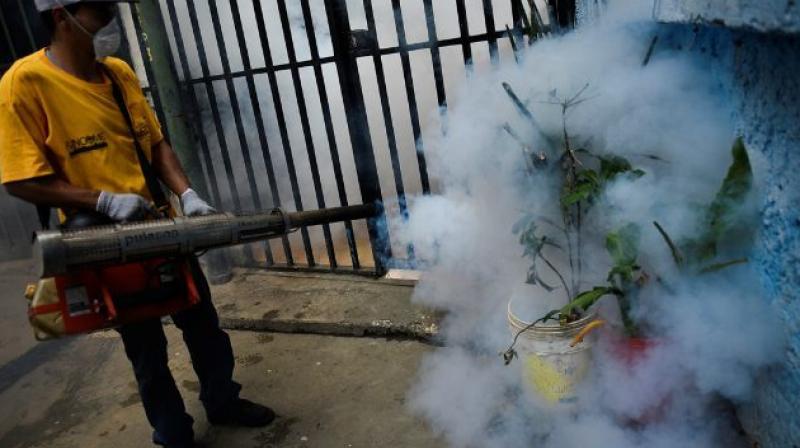New York: Women with high levels of the insecticide DDT in their blood during pregnancy are more likely to bear children who develop autism, according to a study of over one million pregnant women in Finland.
The study, published in the American Journal of Psychiatry, is the first to connect an insecticide with the risk for autism using maternal biomarkers of exposure.
A team, led by researchers at Columbia University in the US, identified 778 cases of childhood autism among offspring born from 1987 to 2005.
Maternal blood taken during early pregnancy was analysed for (DDE), a metabolite of Dichlorodiphenyltrichloroethane (DDT), and polychlorinated biphenyl (PCB), another class of environmental pollutants.
The researchers found the odds of autism with intellectual disability in offspring were increased by greater than twofold for the mother’s DDE levels.
“Along with genetic and other environmental factors, our findings suggest that prenatal exposure to the DDT toxin may be a trigger for autism,” said Alan S Brown, a professor at Columbia University.
For the overall sample of autism cases, the odds were nearly one-third higher among offspring exposed to elevated maternal DDE levels.
The findings persisted after adjusting for several confounding factors such as maternal age and psychiatric history.
There was no association between maternal PCBs and autism.
While DDT and PCBs were widely banned in many nations over 30 years ago, including the US and Finland, they persist in the food chain because their breakdown occurs very slowly, as long as several decades, resulting in continuing exposure to populations.
These chemicals are transferred across the placenta in concentrations greater than those seen in the mother’s blood.
“We think of these chemicals in the past tense, relegated to a long-gone era of dangerous 20th Century toxins,” Brown said.
“Unfortunately, they are still present in the environment and are in our blood and tissues. In pregnant women, they are passed along to the developing foetus,” he said.




 Driving Naari Programme launched in Chandigarh
Driving Naari Programme launched in Chandigarh































